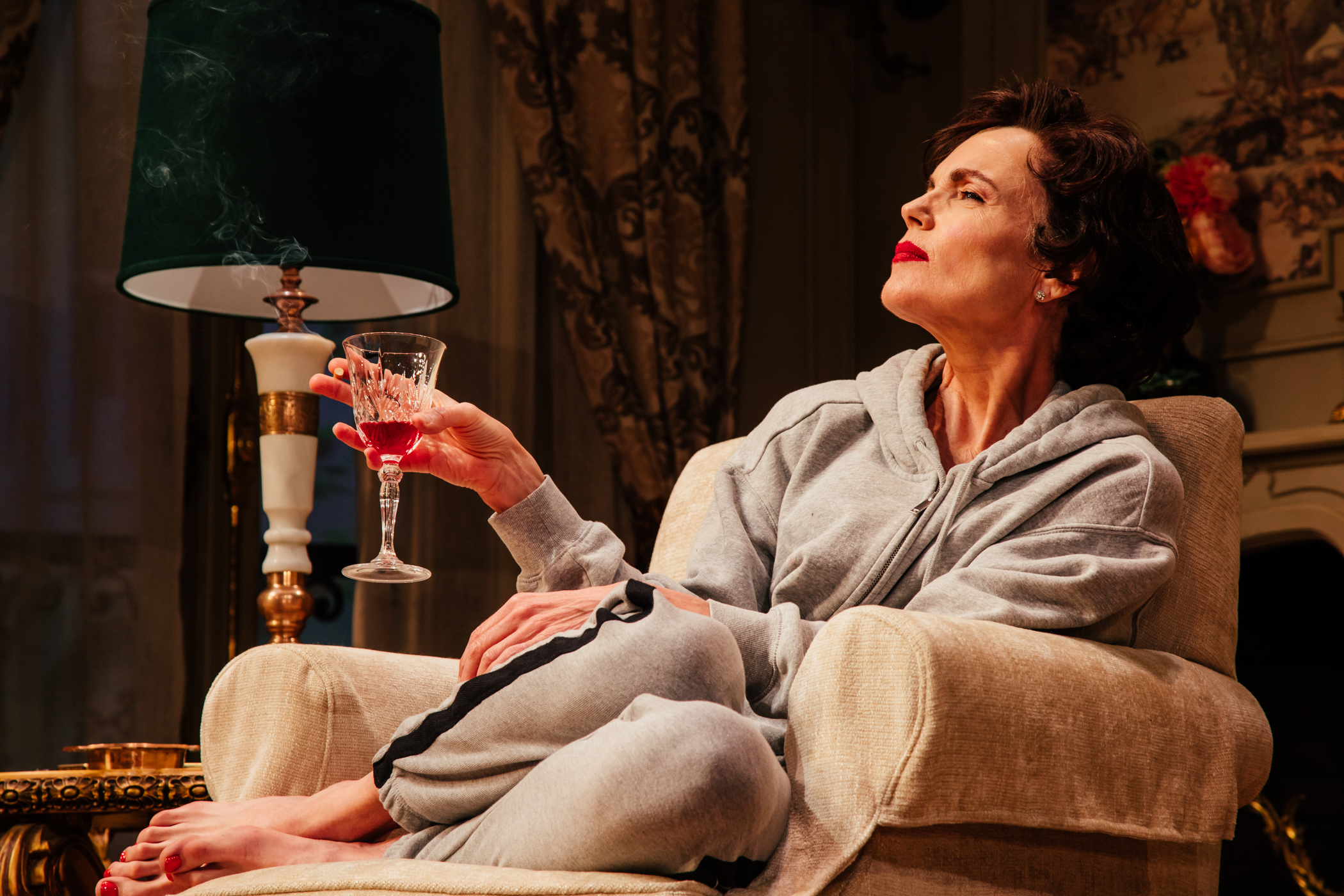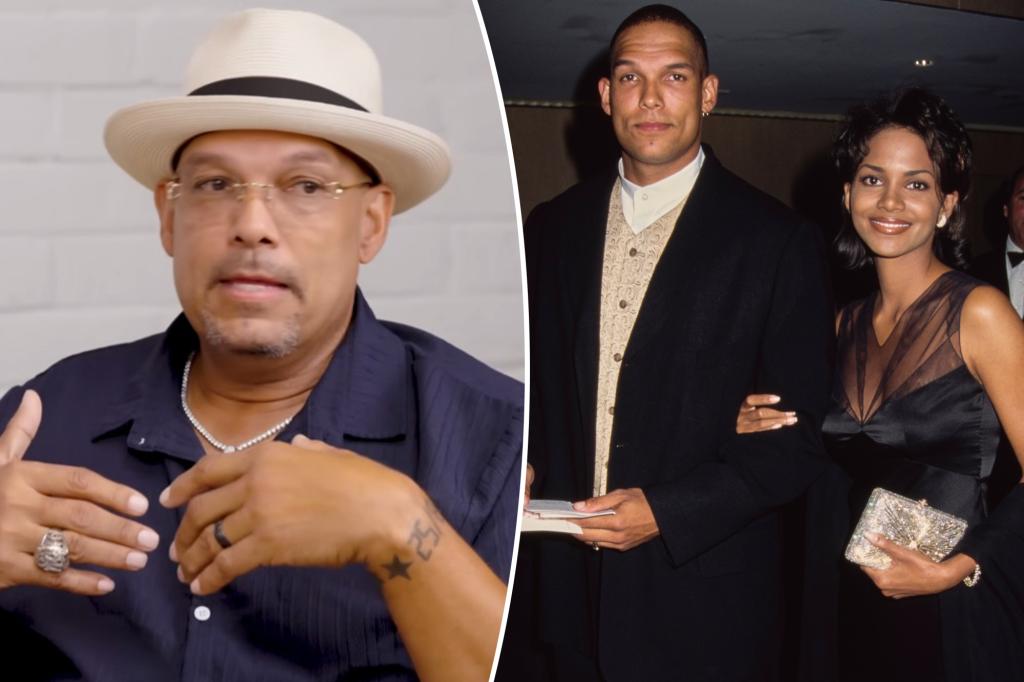
I once spent a whole afternoon with the supremely scintillating, lushly gorgeous and endlessly fascinating Ava Gardner, interviewing her for a profile in Esquire. I never recovered. The result was like a short story—one about a salty, opinionated, faultlessly candid movie star with the haunting appeal of a Technicolor vampire. Once bit, you stayed bitten. Elizabeth McGovern is no Ava, but like the Hollywood icon she seems to emulate, she’s still beautiful at 65, with a similar hairstyle, a waistline her peers would kill for, and, just like Ava’s, a Hollywood film career she abandoned decades ago for a life in London. As a fan with an eye for beauty who was transformed by the MGM glamour girl from the tobacco fields of North Carolina, with her warm, melodic Southern accent and a no-nonsense way of living life her own unique way that created headlines every time she stepped out of a limousine in Paris, Madrid or Beverly Hills, I was mad about Ava Gardner in great films like Mogambo, The Night of the Iguana and The Barefoot Contessa.
Elizabeth McGovern must have felt the same way as a lovely, ambitious, aspiring newcomer eager to make her own mark on the screen. After years of awe, she has now written a play called AVA: The Secret Conversations, in which she also stars. Based on a series of interviews with Ava at the end of a rich, troubled life, following a stroke that left her paralyzed and needing money to support what was left of a fading but still dazzling lifestyle, two years before she died. Reluctantly, after years of saying no, she finally decided the key to survival was to give in and publish her long-awaited memoirs, and she asked British journalist Peter Evans to be her ghost-writer. It was an uncomfortable experience from the first day, compiled from vignettes, rumors and half-hearted responses that comprise the contents of Ms. McGovern’s play, now on view for a limited run at New York City Center. If you love her films and all of the controversial stories about one of the most celebrated stars in movie history, you won’t want to miss it. Just don’t go expecting the truest and final word on the subject. Ms. McGovern didn’t know Ava personally, so I don’t know how accurate it is.


Sipping wine throughout the play, Ava complains her film career was ruined by age, not booze and chain-smoking, but on the afternoon I spent with her, she was guzzling brandy and washing it down with Dom Pérignon. Gregory Peck, one of her most loyal friends and devoted co-stars, claims the drinking is exaggerated, but Charlton Heston insists she was so drunk on 55 Days at Peking that she was often absent, always unprepared, and cost the film millions in delays and retakes. I believe her devastation when MGM dubbed her singing voice in Show Boat, and she was so depressed she gave up singing forever. She had a surprisingly alluring voice, and this play includes an excerpt of her singing “How Are We to Know” from Pandora and the Flying Dutchman to prove it. Her memories of her three marriages—to Mickey Rooney, Artie Shaw and Frank Sinatra—are each treated with lurid sex details and maximum profanity, which may be true, but there must have been some fun in there somewhere that could have added some badly needed balance to the flat narrative.
From experience, I can attest to the humor this play ignores. Take her marriage to legendary jazz clarinetist Artie Shaw, for example. He drove Ava crazy with his relentless attempts to improve her mind, forcing her to read books of sophistication. Their life together ended when he came home one day, found her reading Forever Amber, accused her of loving literary garbage, threw the heavy novel at her head, and narrowly missed giving her a concussion. She dumped and divorced him, then who was his next wife? Novelist Kathleen Windsor, author of Forever Amber. These are items Ms. McGovern either didn’t know or left out on purpose.


Ace New Yorker magazine journalist Lillian Ross once opined that the way to become a great interviewer of famous people is knowing when to leave. It’s a lesson Peter Evans never learned. In the material he collected to create the posthumous book the play is based on, he seemed more interested in himself than his subject. The episodic scenes the play is peppered with reveal more of the interviewer than his subject, often shifting the focus to make him the star, as well as the most important influence on her life of anyone. Rooney, Artie Shaw and even Sinatra—as well as Ava’s numerous affairs, including Howard Hughes and George C. Scott, who threw her out of a hotel window in Nice—become minor infractions in a life of major mistakes.
It must be noted that Aaron Costa Ganis, who plays all of the men in the play, is colorful and versatile, even when he sings a hip version of “I’ve Got You Under My Skin” that sounds astoundingly similar to Sinatra’s. But Evans is not an appealing character. He’s also not much of a writer, and he even broke all of the rules by hanging around after she killed the interview and asked her to marry him, which she refused to do on moral grounds because he was already a married man (a distinction that never bothered her before). The interview was never finished, as Sinatra threatened to sue him. You won’t learn anything you didn’t know going in, and the small, sometimes hilarious details that would make this a better play remain the only secrets in The Secret Conversations. It’s not a disaster, but any play about Ava Gardner that is this dull is definitely a disappointment.
More in performing arts
<




